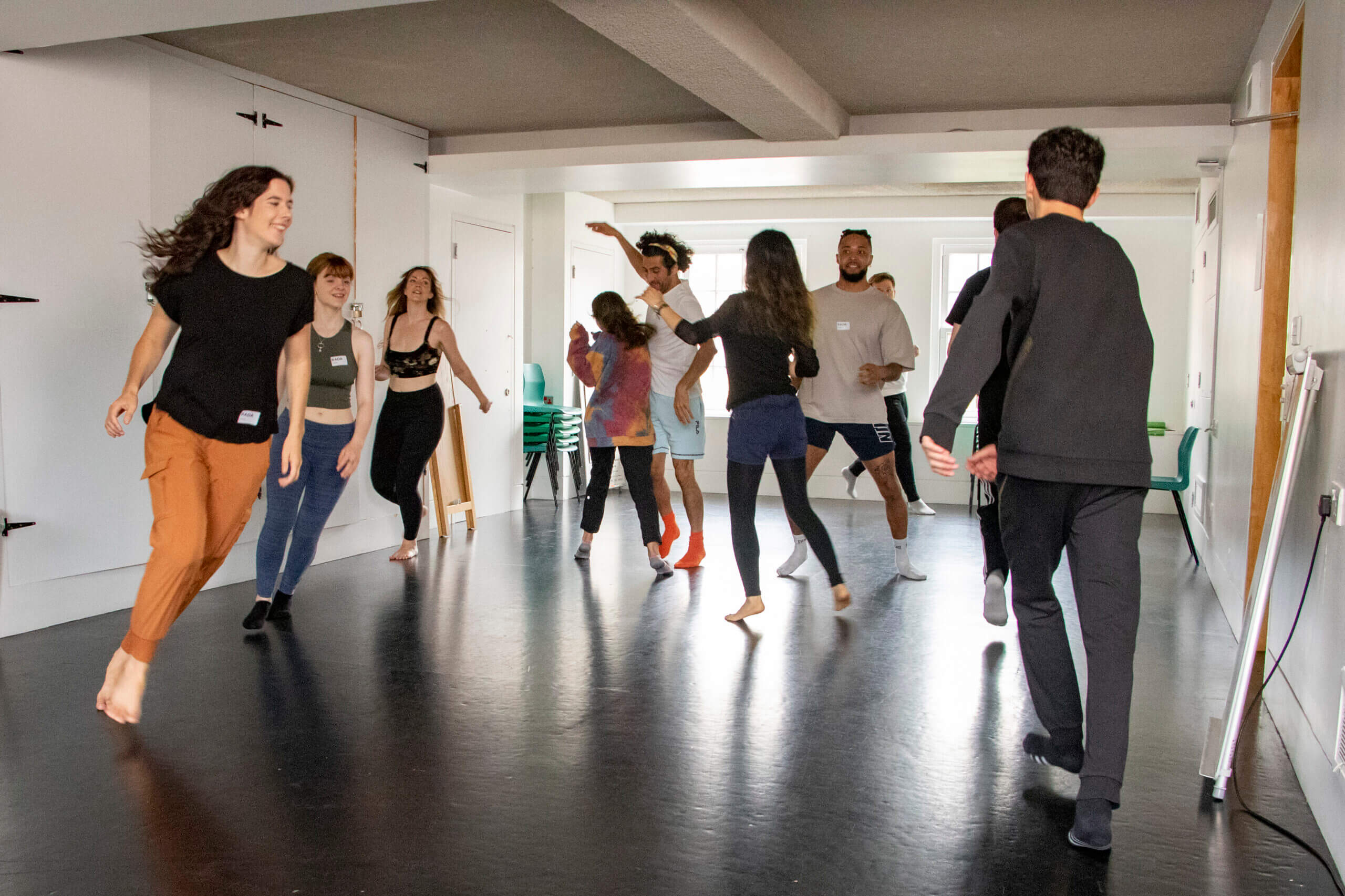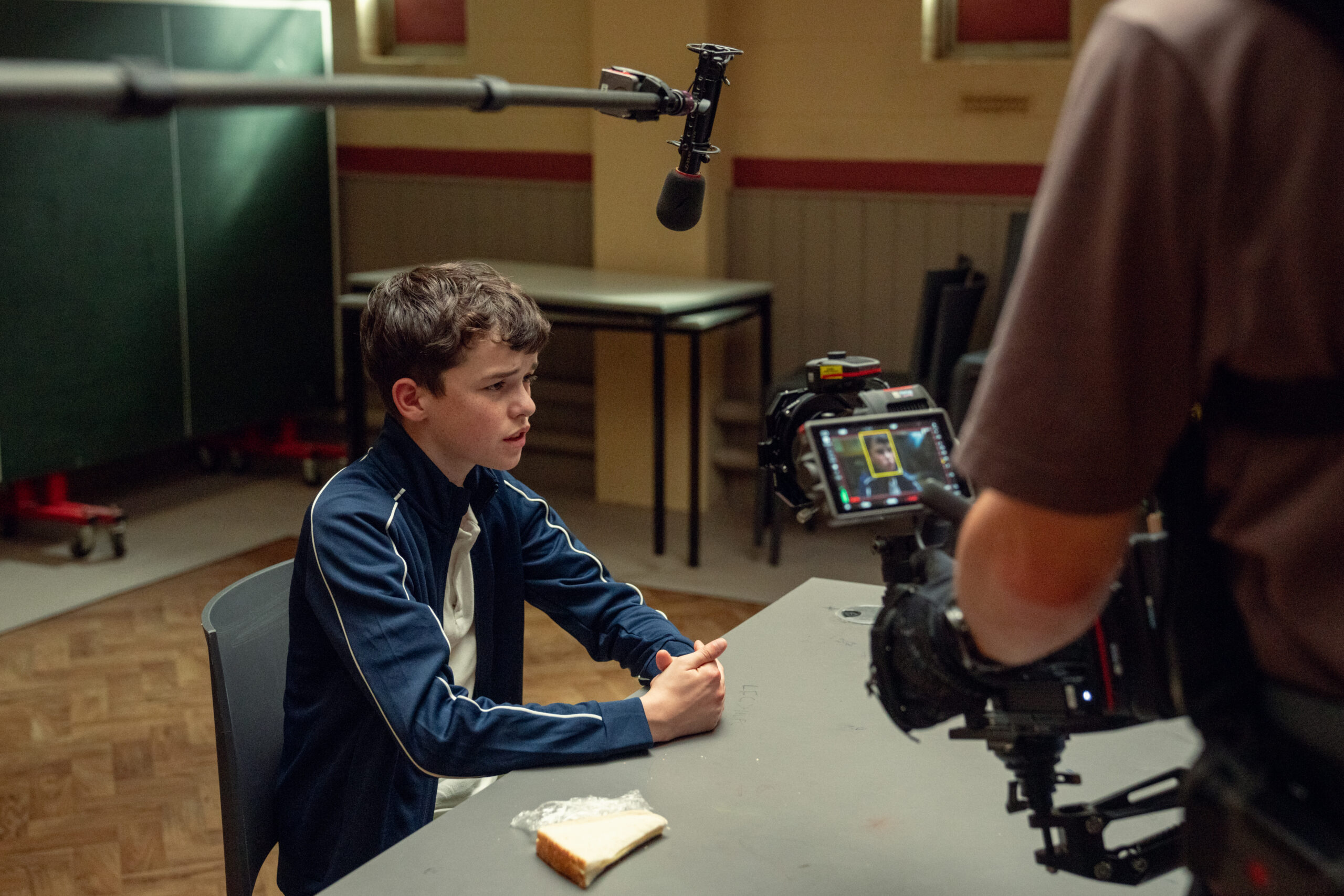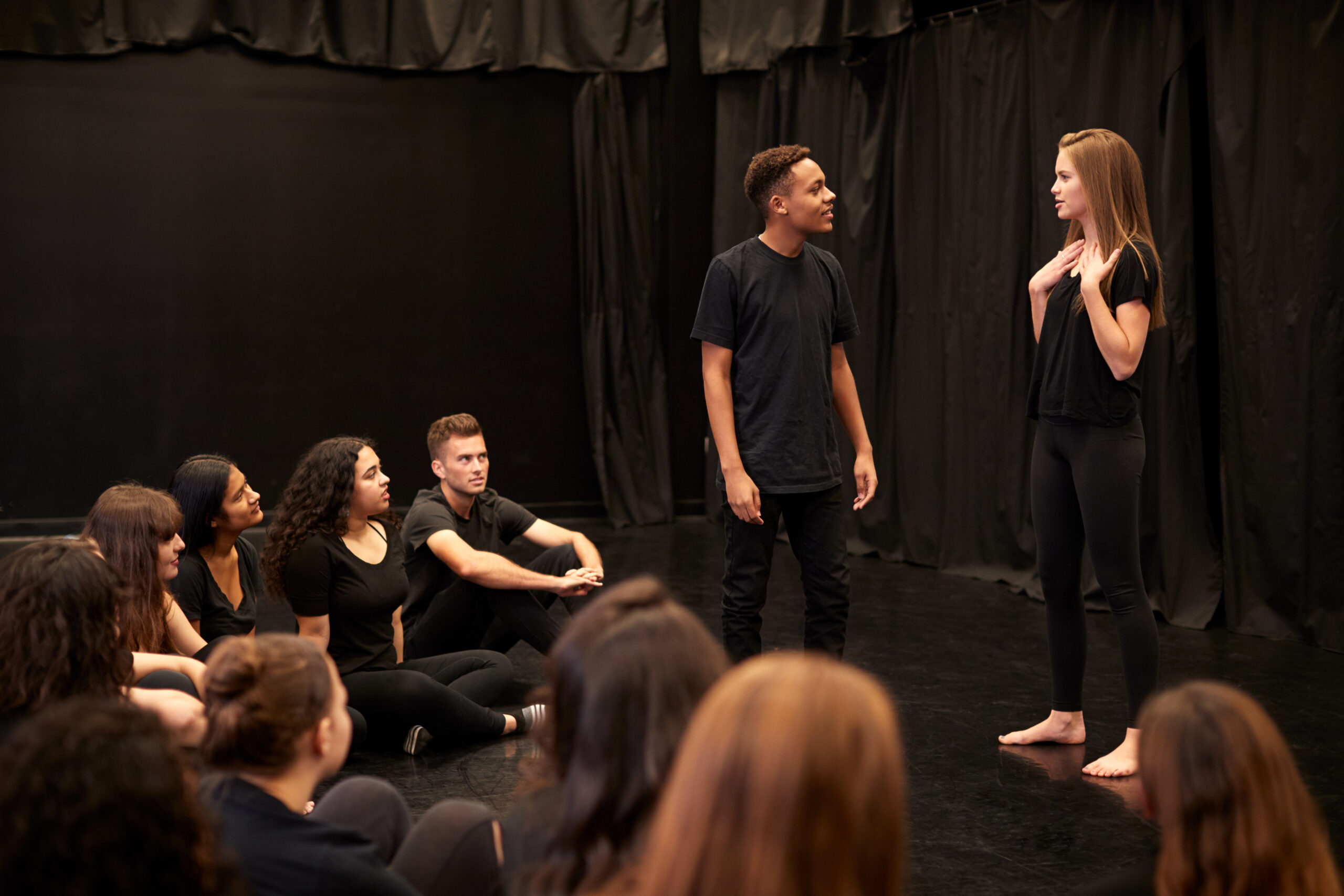What to consider when looking for a part-time acting course and how to choose one that’s right for you
Whether you’d like to get a taste for acting, train to be a professional, or upskill while working as a professional actor, part-time acting courses have much to offer. They can help you secure a place on a competitive BA (Hons) Acting course or give you an alternative to the full-time training model.
The US tends to have more of a studio training style, where actors work full-time alongside their classes. This is also becoming more commonplace in the UK, with many drama schools adapting to make their training more flexible for those who need to earn money while learning their craft.
Which Part-Time Acting Course is Right for You?
Before you start your search, it might be helpful to ask yourself a few questions:
- Are you taking a part-time course, hoping to be offered a full-time place at drama school later on?
If the answer is yes, taking a part-time course at one of your potential drama schools might be helpful to better understand how they’re run and if it suits you. Top drama schools such as The Royal Academy of Dramatic Art (RADA), The Royal Central School of Speech and Drama (RCSSD), Guildford School of Acting (GSA), Drama Studio London, and The Royal Conservatoire of Scotland (RCS) are just some of the drama schools who offer part-time courses.
- Are you looking to take a part-time course as an alternative to a full-time traditional drama school?
If yes, consider taking a longer part-time course, such as a diploma. Take a look at drama schools like the Identity School of Acting, which offers excellent part-time comprehensive training and has excellent alums, including Spotlight member Letitia Wright (Black Mirror).
- Have you already trained, and/or are you hoping to work as an actor while taking a part-time course?
If yes, design your own American studio-style training by taking a variety of classes that focus on particular skills.
Foundation Courses
Many of the well-known drama schools offer a one-year foundation course. This includes The Oxford School of Drama, Rose Bruford College, RADA, Guildford School of Acting, LAMDA, LIPA, Royal Birmingham Conservatoire and Drama Centre. These tend to be easier to get into than the competitive BA and MA programmes and help many students gain the skills needed to secure a place on a BA course at drama school.
Lesser-known schools and other independent providers also offer foundation courses that are particularly helpful if you need to remain in your local area. Foundation courses are often full-time, but some are part-time.
RADA has a part-time Blended Acting Foundation. This six-month program is taught online and in-person and is designed to engage a cohort of more mature participants. The accelerated nature of the course prepares students to pursue a career in acting by immersing them in practical, vocational training and enabling them to develop a solid personal practice. At the same time, the part-time schedule facilitates work and care commitments.
Michelle Chadwick, the course director, said, “Participants learn skills that will take them very far, from communication and teamwork to finding and trusting their own voices.”
The Lir National Academy of Dramatic Art in Dublin offer a one-year Foundation Diploma in Acting and Theatre. This is aimed primarily at school leavers preparing for three-year acting training at the conservatoire level.
Part-time Short Courses
There are many flexible part-time acting classes available. With so much on offer, you can design your own training programme and even draw on several different schools to widen your experience. Many drama schools, both known and not-so-known, offer exciting opportunities.
City Academy offers a variety of weekend and evening courses at its new multi-studio building in Farringdon. This includes classes in acting, comedy improvisation, improvisation, Stanislavski, Method Acting, Shakespeare and more.
The Royal Conservatoire of Scotland (RCS) has short course programmes that are a vibrant mix of weekly and weekend courses and summer schools. This includes Acting for Beginners, Introduction to Actor Training, Auditioning for Drama School, Acting for Camera, Creating and Performing Verbatim Theatre, Self-Tapes and Online Auditions, Introduction to Theatre Directing and courses exploring Shakespeare, Chekhov and Stanislavski.
The Royal Central School of Speech and Drama (RCSSD) also runs a variety of short courses, in-person and online, from introductory courses to artist development courses for professionals. All are run by industry professionals.
The Kingdom School of Arts, founded by Ashley Walters, is a part-time drama school in London. The schools run a 24-week Performing Arts Acting course, which is taught on Sundays. Plus, they offer a free eight-week, part-time acting training course for 16-19 year olds!
Online Short Courses
Some schools, like The Identity School of Acting and the RCSSD, deliver online courses. Or you might like to try an online course in the USA, perhaps with The Michelle Danner Acting Studio or The Stella Adler Studio of Acting.
An Audition Techniques online student at RCSSD said, “Throughout the course, we built an incredible cohort of creators who, with the help of our teacher, were allowed to tackle the work with joy and speak for ourselves. This experience has given me a new confidence going into drama school auditions. I would highly recommend!”
How to Quality Check a Course
You’ll need to do some of your own detective work to check the part-time course is worth the fees, but here are a few tips to get you started:
- Check teacher credentials: If the teacher is also teaching on a BA (Hons) or master’s at a prestigious drama school, this is a very good sign that the part-time course will be of a high standard.
- Check the alum: A strong list of people who have attended the course or school is a good sign. For example, the Identity School of Acting has many graduates landing leading roles in major productions in the UK and USA, such as John Boyega (Star Wars: The Force Awakens) and Letitia Wright (Black Mirror).
- Check the curriculum: Some courses will offer a varying degree of components in the way they are structured, and it’s important to check this out before making your decision. They might offer more screen training, theatre, improv, voice training, or movement-based activities. Read the curriculums and make sure they’re packed with content that excites you. If the curriculum isn’t available, ask to see it.
- Visit on an open day: Many part-time courses might put on a show, have an open day, or allow you to take a taster class for free. Grab these opportunities so that you can find the best part-time course for you.
Take a look at our website for more tips about actor training, including training routes for emerging performers and how to finance your training and acting career.
 Sam teaches drama and writes drama teaching resources. Author of 100 Acting Exercises for 8-18 Year Olds, and the Pocketful of Drama book series, which includes Acting Games for Improv, and Drama Games for Early Years. She also writes for The Stage newspaper and Teach Primary. Instagram @pocketfulofdrama. Twitter @SamMarsdenDrama
Sam teaches drama and writes drama teaching resources. Author of 100 Acting Exercises for 8-18 Year Olds, and the Pocketful of Drama book series, which includes Acting Games for Improv, and Drama Games for Early Years. She also writes for The Stage newspaper and Teach Primary. Instagram @pocketfulofdrama. Twitter @SamMarsdenDrama
Headshot credit: Rosalind Hobley



















